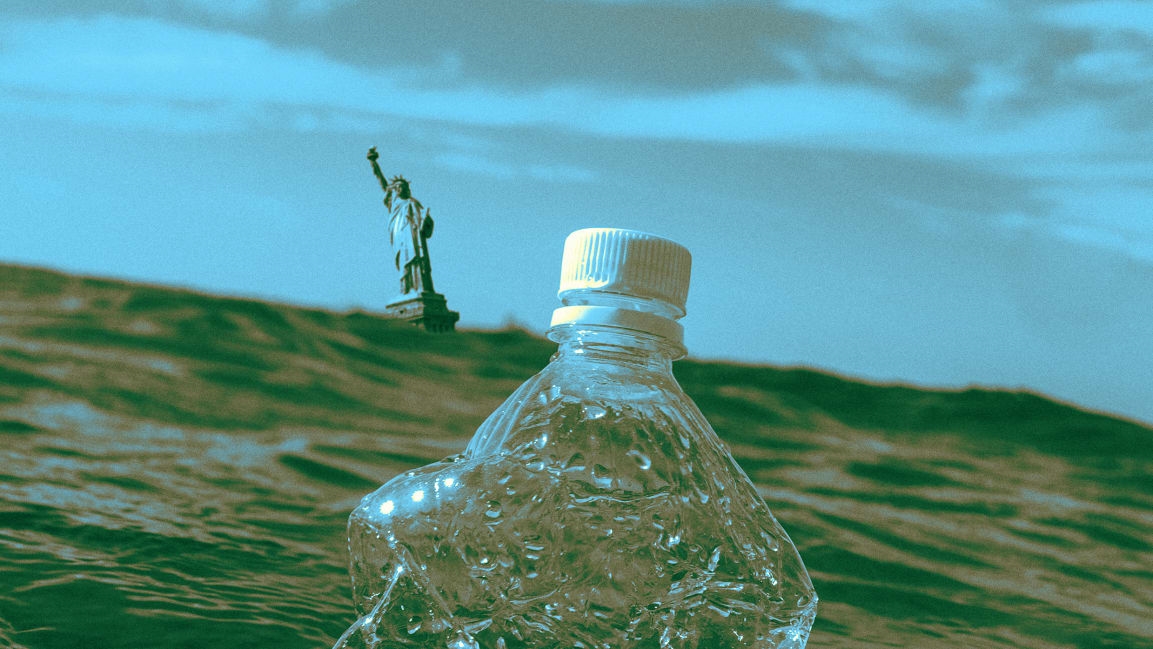The U.S. is one of the world’s worst ocean plastic polluters
Americans may have a distorted view about what happens to the incredible amount of plastic we use. Despite decades of discussion about the importance of recycling, only around half of Americans can leave their recyclables at the curb with the garbage. And even when old plastic bottles or packages do end up in recycling bins, they often aren’t recycled (though glass and aluminum are). Instead, they end up being shipped to other countries that don’t have adequate recycling infrastructure to handle the waste. Because of this, a new study calculates that the U.S. is one of the world’s largest contributors to ocean plastic pollution, ranking just behind Indonesia and India.
Unlike some past estimates, the study includes the plastic trash that the U.S. sends elsewhere. In 2016, the year with the most recent available data, as much as 1.25 million metric tons of plastic was littered or illegally dumped within U.S. borders. Out of the waste sent to other countries, as much as one million additional tons of American trash likely ended up polluting the environment, either because those countries couldn’t manage the waste well or because the plastic was so dirty or low-value that it couldn’t be recycled. Around 1.5 million tons, in total, likely ended up near coastlines and may have polluted the ocean.
“This study really was to reevaluate the role of the United States in the global plastic pollution conversation, given we are the largest producer of plastic waste globally, and we now know that a large percentage of that plastic waste has been exported overseas, to many places where they do not have the ability to manage responsibly,” says Nicholas Mallos, senior director of the Trash Free Seas Program at the nonprofit Ocean Conservancy and one of the authors of the study. Though the U.S. made up around 4% of the global population in 2016, it produced 17% of the world’s plastic waste, twice as much as Europeans.
The situation has likely changed since 2016, since China implemented new policy in 2018 that dramatically reduced the plastic it was willing to import. The U.S. now exports less plastic; some other countries followed China’s ban. But without domestic markets for recycling, the recycling rate in the U.S. has dropped even lower than it already was, as waste continues to increase. “All of this points to the urgent need to reduce unnecessary plastics here in the United States, while drastically overhauling recycling,” he says.
Voluntary commitments from companies won’t go far enough, he says, even as an increasing number of businesses begin to experiment with alternatives like reusable packaging. Instead, we need better policy both to reduce the amount of plastic that’s used—like a New Jersey law that bans products like single-use plastic bags and foam containers—along with incentives to build a truly circular economy.
(29)



